Preoperative optimization for patients undergoing elective spine surgery.
Date
2021-01-14
Journal Title
Journal ISSN
Volume Title
Repository Usage Stats
views
downloads
Citation Stats
Attention Stats
Abstract
Type
Department
Description
Provenance
Subjects
Citation
Permalink
Published Version (Please cite this version)
Publication Info
Wang, Timothy Y, Meghan Price, Vikram A Mehta, Stephen M Bergin, Eric W Sankey, Norah Foster, Melissa Erickson, Dhanesh K Gupta, et al. (2021). Preoperative optimization for patients undergoing elective spine surgery. Clinical neurology and neurosurgery, 202. p. 106445. 10.1016/j.clineuro.2020.106445 Retrieved from https://hdl.handle.net/10161/22320.
This is constructed from limited available data and may be imprecise. To cite this article, please review & use the official citation provided by the journal.
Collections
Scholars@Duke
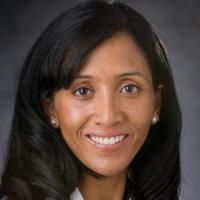
Melissa Maria Erickson
I am a spine surgeon who provides surgical management of cervical, thoracic and lumbar spine conditions, including cervical myelopathy, herniated discs, deformity, stenosis, tumor and trauma. I provide both minimally invasive procedures as well as traditional surgical techniques.
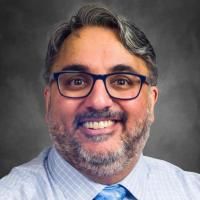
Dhanesh Kumar Gupta
The overall theme of my research is the application of clinical pharmacology tools to the individualization of the care of high-risk surgical patients, especially those undergoing neurosurgical procedures. Current research focuses on creating pharmacokinetic-pharmacodynamic models to allow simulation of dose-concentration-effect relationships that will result in reduced toxicity while maximizing efficacy of intravenous opioids and hypnotics. The perioperative period is a time when patients are exposed to a multitude of drugs from a different classes, some of which may attenuate while others may augment the deleterious cascade of events that starts in the operating room and result in worse neuro-oncologic, neurovascular, or pain outcomes, even after the perioperative medication has been discontinued. Analytical techniques for perioperative “big data” have not been combined with the clinical pharmacology toolbox to create dose-response models that can help optimize perioperative care. Through collaboration with pharmacometricians and informaticians, care paths can be developed in an iterative fashion to expose the innards of the perioperative black box.
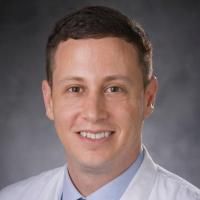
Oren N Gottfried
I specialize in the surgical management of all complex cervical, thoracic, lumbar, or sacral spinal diseases by using minimally invasive as well as standard approaches for arthritis or degenerative disease, deformity, tumors, and trauma. I have a special interest in the treatment of thoracolumbar deformities, occipital-cervical problems, and in helping patients with complex spinal issues from previously unsuccessful surgery or recurrent disease.I listen to my patients to understand their symptoms and experiences so I can provide them with the information and education they need to manage their disease. I make sure my patients understand their treatment options, and what will work best for their individual condition. I treat all my patients with care and concern – just as I would treat my family. I am available to address my patients' concerns before and after surgery. I aim to improve surgical outcomes for my patients and care of all spine patients with active research evaluating clinical and radiological results after spine surgery with multiple prospective databases. I am particularly interested in prevention of spinal deformity, infections, complications, and recurrent spinal disease. Also, I study whether patient specific variables including pelvic/sacral anatomy and sagittal spinal balance predict complications from spine surgery.
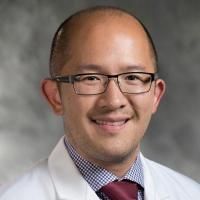
Khoi Duc Than
I chose to pursue neurosurgery as a career because of my fascination with the human nervous system. In medical school, I developed a keen interest in the diseases that afflict the brain and spine and gravitated towards the only field where I could help treat these diseases with my own hands. I focus on disorders of the spine where my first goal is to help patients avoid surgery if at all possible. If surgery is needed, I treat patients using the most advanced minimally invasive techniques available in order to minimize pain, blood loss, and hospital stay, while maximizing recovery, neurologic function, and quality of life. In my free time, I enjoy spending time with my family and friends. I am an avid sports fan and love to eat. I try to stay physically fit by going to the gym and playing ice hockey.
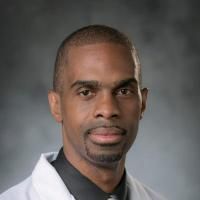
Courtney Rory Goodwin
Associate Professor of Neurosurgery, Radiation Oncology, Orthopedic Surgery.
Director of Spine Oncology,
Associate Residency Program Director
Third Year Study Program Director Neurosciences, Duke University School of Medicine
Director of Spine Metastasis, Duke Center for Brain and Spine Metastasis, Department of Neurosurgery
Duke Cancer Institute, Duke University Medical Center
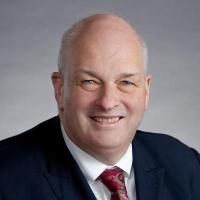
Christopher Ignatius Shaffrey
I have more than 25 years of experience treating patients of all ages with spinal disorders. I have had an interest in the management of spinal disorders since starting my medical education. I performed residencies in both orthopaedic surgery and neurosurgery to gain a comprehensive understanding of the entire range of spinal disorders. My goal has been to find innovative ways to manage the range of spinal conditions, straightforward to complex. I have a focus on managing patients with complex spinal disorders. My patient evaluation and management philosophy is to provide engaged, compassionate care that focuses on providing the simplest and least aggressive treatment option for a particular condition. In many cases, non-operative treatment options exist to improve a patient’s symptoms. I have been actively engaged in clinical research to find the best ways to manage spinal disorders in order to achieve better results with fewer complications.
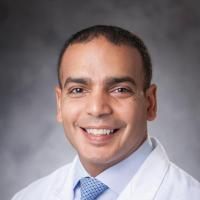
Muhammad Abd-El-Barr
As a Neurosurgeon with fellowship training in Spine Surgery, I have dedicated my professional life to treating patients with spine disorders. These include spinal stenosis, spondylolisthesis, scoliosis, herniated discs and spine tumors. I incorporate minimally-invasive spine (MIS) techniques whenever appropriate to minimize pain and length of stay, yet not compromise on achieving the goals of surgery, which is ultimately to get you back to the quality of life you once enjoyed. I was drawn to medicine and neurosurgery for the unique ability to incorporate the latest in technology and neuroscience to making patients better. I will treat you and your loved ones with the same kind of care I would want my loved ones to be treated with. In addition to my clinical practice, I will be working with Duke Bioengineers and Neurobiologists on important basic and translational questions surrounding spinal cord injuries (SCI), which we hope to bring to clinical relevance.
Unless otherwise indicated, scholarly articles published by Duke faculty members are made available here with a CC-BY-NC (Creative Commons Attribution Non-Commercial) license, as enabled by the Duke Open Access Policy. If you wish to use the materials in ways not already permitted under CC-BY-NC, please consult the copyright owner. Other materials are made available here through the author’s grant of a non-exclusive license to make their work openly accessible.
